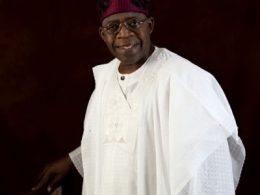
Dr Benson Oke
Lagos State Governor, Aknwunmi Ambode on Tuesday said there was the need for the promotion of social dialogue with labour leaders in the state in a bid to bring about industrial harmony.
The governor spoke while flagging off a two-day training programme on “Trade Unionism, Collective Bargaining, and Leadership for Trade Union Leaders,” held in Ikeja, Lagos, Southwest Nigeria.
According to Ambode, the training represented an attempt at promoting social dialogue, one of the procedures recommended by the International Labour Organisation, ILO for ensuring industrial harmony and public satisfaction with the public service.
The governor, who was represented by the Commissioner for Establishments, Training and Pensions, Dr. Benson Oke, said social dialogue should form part and parcel of the regulation of labour relations in the public sector.
“Dialogue and bargaining can and should be key contributors to public sector efficiency, performance and equity. However, because competing interests are involved, neither is conflict-free. If governments and public-sector unions are to be encouraged to bring these dynamics into public sector work, where industrial peace carries a special premium in the public mind, then considerations of conflict management must be uppermost,” he said.
Ambode stressed that government and the organised labour unions in the state had utilized the process of collective bargaining to further mutual understanding, deepen trust and concretize a symbiotic relationship among the stakeholders.
“Notwithstanding the availability of this veritable tool such as collective bargaining, one wonders why there has been so much breakdown of industrial harmony in Nigeria. In Lagos State, we have found the answer. Indeed, the difference between the Lagos State model and the vanilla model elsewhere is that in Lagos State, we invest heavily in capacity building for trade union leaders, government officials charged with the management of trade union matters and for workers generally,” he stated.
The governor added that in terms of conceptualizing the relationship between employers of labour such as the Lagos State Government and trade unions, certain misconceptions persisted, saying that the Trade Union Congress alluded to one of such misconceptions on its website when it noted that, “Government and business entrepreneurs generally seek to limit attainment of the aims and purposes of trade unions.”
“This needs not be so. Indeed, it is gratifying to note that enlightened nations and owners of capital now better appreciate and reward the prime, indispensable and invaluable role of labour in the grand scheme of wealth production. Furthermore, I am proud to count the Lagos State Government as one of such enlightened owners of capital and employers of labour to whom the welfare, remuneration, comfort and continuing education and training of labour is of utmost importance,” he said.
Ambode emphasised that the state government valued its mutually-beneficial relationship with the trade unions and hoped to fully mine and appropriate the benefits of trade unionism and collective bargaining.
“This, we know full well, may only be realised when leaders of trade unions have benefited from robust exposure to the art of constructive and productive unionism that engages, partners, assists, collaborates, and relates with the government rather than merely antagonizing it for the sake of it. Leadership training of both the union leaders and the officials of government tasked with labour relations invariably results in a win-win outcome for both the government and the workers represented by the trade union leaders,” he added.









